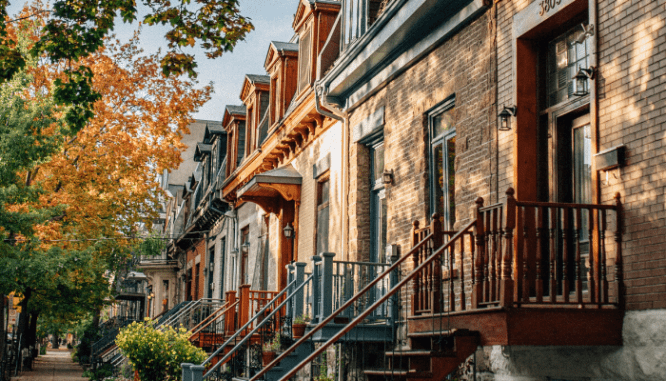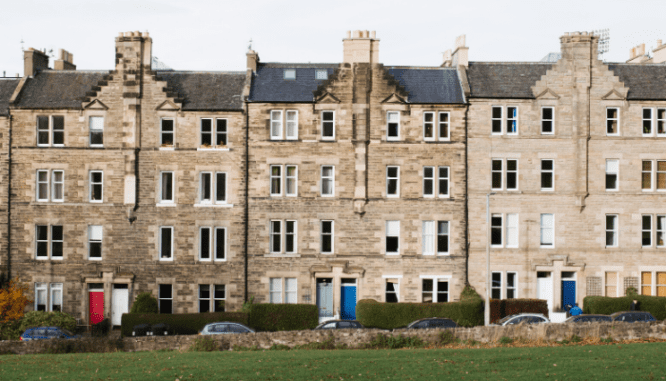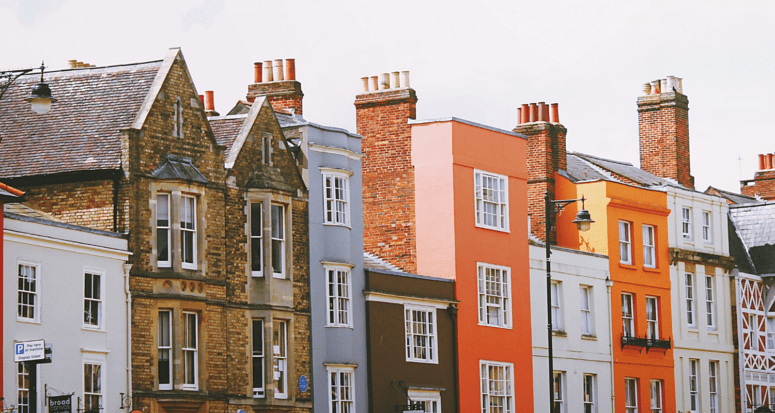Help! What Is a Townhouse and Is It Right for My Family?
- Published on
- 4 min read
-
 Evette Zalvino Contributing AuthorClose
Evette Zalvino Contributing AuthorClose Evette Zalvino Contributing Author
Evette Zalvino Contributing AuthorEvette is just your average HGTV fan who dreams of having a home worthy of being on one of those shows. When she isn't writing for HomeLight, she's working at her local real estate office. In her downtime, you'll find her searching for the next great hiking trail in her area.
When you’re looking at real estate listings and you see different terms for types of dwellings, do you find yourself wondering, “What is a townhouse?”
You probably think a townhouse is another name for a condo, or that it’s a fancier apartment located in the nicer parts of town. Don’t worry — you aren’t the only one with that assumption. It’s quite common for people to be confused about townhomes.
We’ll clear the air once and for all, plus answer common questions people have about townhouses and the pros and cons of owning one.

What is a townhouse?
Townhouses first appeared in Paris (or England) during the early 1600s, and when immigrants came to America (namely, New York City), so did the townhouse. These homes can be defined as multi-level single-family homes that share one or two walls with adjacent units, but they don’t share ceilings or floors. They do, however, share a rooftop with neighbors.
The typical townhouse measures 20 feet by 45 feet, but you can most certainly find larger townhomes if you wanted to. The general layout will have the living spaces (kitchen, living room, great room, and dining room) on the first floor, while the bedrooms and bathrooms are located on the second floor.
When you own a townhouse, you own the individual unit as well as the property the unit sits on. Owning your unit means you’ll have a small front yard and a backyard, which can be quite appealing for families who want some outdoor space.
“If you want to own a townhouse, you’re responsible for maintaining the interior, as well as the exterior,” Claudia San Roman, a top-selling agent in Miami, explains. “Also, if you own a townhouse, your down payment can be lower than what you would for a single-family home.”
We want to note that there are some townhouse communities where outdoor maintenance is provided for you, but that usually means higher homeowner association (HOA) fees — more on that later.

What are the benefits of owning a townhouse?
Affordability
One of the chief benefits of owning a townhouse is the price. According to San Roman, “People buy townhouses because they’re more affordable and easier to get into than a single-family home.
“The average townhouse in Miami will cost between $300,000 to $350,000. If you wanted a single-family home, you would have to come in at least $400,000 or more,” she adds.
Location
Many people who love the city choose to buy townhouses because they can eat their cake and have it, too: They can have an affordable home in the city for a fraction of the cost of purchasing a house in the same area.
With a townhouse in the middle of downtown, you’ll be close to public transportation, near the city’s shopping and the local nightlife, maybe even be closer to work.
Amenities and services
Residents of the townhome community typically have access to more amenities than those who live in a traditional neighborhood. They may have swimming pools, a community gym, playgrounds, and clubhouses for social gatherings. Along with access to amenities, the HOA fees may include general maintenance, landscaping, cable, trash collection, and water.
Close-knit community
For those who want to socialize with their neighbors, a townhome community is a perfect opportunity to do so. If you were to live in a regular, single-family neighborhood, you might only have a small handful of neighbors to socialize with and get to know. However, in a townhome community, you can socialize with dozens of people within a very short radius from your front door.
Sense of security
Although 40% of neighborhoods in the United States have a neighborhood watch team, sometimes it’s not as effective as homeowners want it to be. However, since townhome communities are usually close-knit, neighbors are likely to notice unfamiliar faces and report and suspicious activity to the authorities.
Also, since homes share the same roof and walls, neighbors can notify maintenance of any problems they may see or smell (like leaky roofs or gas leaks). This kind of security is especially useful for those who like to travel and aren’t always home.
Resellability
“It’s pretty easy to sell a townhome because they’re affordable, and there are a lot of people who want to live in a city,” San Roman shares.
“If you have a one-story townhouse, then you’re golden — because most townhouses are two-stories, and a lot of people, especially older people, don’t want houses with stairs.”
Insurance rates
We all know that it’s essential to have insurance on your home, but with a townhouse, it’s a little different. The national average annual cost of a single-family home is $1,228, but an insurance policy for a townhome is going to be less because the dwelling is smaller.
There are some communities where the HOA will cover a portion of the insurance. However, there are many other communities where the homeowner is responsible for purchasing a policy. Townhouse insurance (also known as an HO3 townhome policy) is going to cover your personal property, the structure, and the land it sits on if anything is damaged due to a peril named in your policy.

What are the drawbacks of owning a townhouse?
Homeowner’s association
The fees for living in a community with an HOA can get pretty expensive. San Roman explains, “Association fees can run as low as $100, and the others can be over $1,500 depending on how many amenities are available and what services are included.” These fees will cover the upkeep of communal areas, landscaping, and roof or yard maintenance.
Not only can the HOA be quite expensive, it limits what you can and can’t do. For example, some HOAs have a pet restriction, or they’ll have strict rules regarding what colors you can paint your house, whether you can have a fence, and so forth.
Should the HOA find you in violation of the rules, you could face fines! Yes, you might have to pay more money to the HOA on top of the monthly or annual fees. Don’t think you can ignore those pesky fines because in some states, the HOA can actually put a lien on your house.
In short, many people feel that HOAs are too restrictive, and they dislike having to follow rules that limit the homeowner’s freedoms.
Privacy
If you’re a private person and aren’t interested in socializing with neighbors, you probably aren’t going to like living in a townhome community. Unlike a detached single-family home, you’re likely to have noisy neighbors, nosy busy-bodies, or people who have different waking hours than you.
Let’s not forget that you have to abide by the HOA rules, which may have restrictions on parties, visitors, and noise.
Home appreciation
You may have gotten a great deal on a townhouse, and it’s easy to resell — that doesn’t mean you’re going to make a lot of money. It’s not uncommon for townhouse developers who’ve created a thriving community to replicate the same design elsewhere. It’s going to be more challenging to sell your townhouse if there are others just like it, but in better (or brand new) condition. It’ll be even harder if the community is in a better location than yours.
Limited space
The average townhouse can measure anywhere between 1,132 square feet to 2,200 square feet and offer very little space outdoors. Many townhouse developers try to make the most of the space they have, but storage space isn’t always a top priority. The square footage can be a problem as your family grows and accumulates more stuff. If you outgrow what little storage you have, you might want to rent a storage unit, which is an additional expense you may not have accounted for when signing on the dotted line.

Is owning a townhouse right for you?
Townhouses are an excellent option for first-time homebuyers or anyone who is looking for an affordable home that’s easy to maintain. As a resident of a townhome community, you have access to amenities and services that you wouldn’t have in a single-family neighborhood, plus you have a stronger sense of community and security.
As awesome as owning a townhouse might be, it’s not for everyone. If you value individuality and freedom to do whatever you want with your property, townhome communities typically have an HOA with rules that all residents have to follow.
Everyone has their idea of the perfect home. Some people prefer to have a single-family home where they have privacy and can do what they want with their property. Some people don’t mind being close to their neighbors because they enjoy being an active member of a close-knit community and have access to a variety of amenities and services.
Whatever type of home you decide is right for you, the one main thing that should matter to you is if you can see yourself and your family being happy there. After all, home is where the heart is — regardless of the type of structure!
Header Image Source: (Toa Heftiba / Unsplash)
